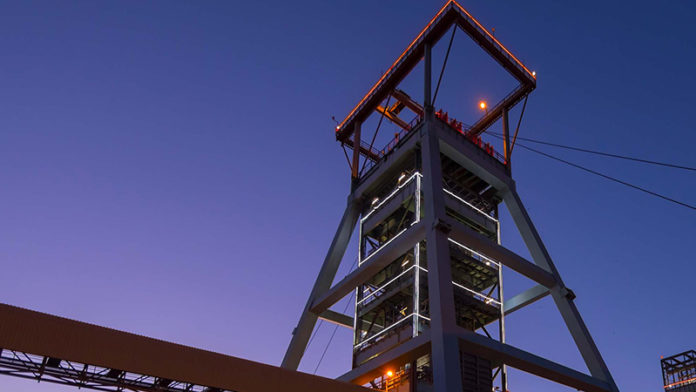
ROYAL Bafokeng Platinum (RBPlat) delivered on its promise at the half-year to resume dividend payments, but the policy adopted was modest – set at a minimum 10% of free cash flow before growth capital – reflecting the transitional nature of the company including cost inflation struggles at Bafokeng Rasimone Platinum Mine (BRPM).
Higher grade Merensky ore at BRPM’s South Shaft has been depleted which has sent the company to lower grade (but relatively shallow) UG2 ore at the mine. This has resulted in cost increases and less efficient, lower recovery mining. RBPlat has also complained of the difficulty in sourcing and retaining mining skills which has contributed to mine inflation.
The outcome in RBPlat’s 2019 financial year was a 35% increase in cash operating costs to R14,139 per ounce of 4E platinum produced, some 6.3% higher than guided. This was despite increases in tons milled and 4E metals in concentrate produced which were 12.5% and 9% higher year-on-year.
Total 4E metals produced totalled 401,000 oz whilst the company produced 261,000 oz of platinum, a year-on-year increase of 9.2%.
BRPM production was also supplemented with the ramp up of Styldrift, RBPlat’s R11.7bn project which was expensed for the first time this year. Styldrift has potential to increase RBPlat’s platinum group metals (PGM) production to about 600,000 oz. However, for the current financial year, production of 450,000 to 485,000 oz has been targeted at a cash operating cost of between R13,300 to R14,400 per 4E oz.
For the year under review, share earnings were 66.3% lower at some 26.3 cents, although there was some noise in the numbers. 2019 earnings included some R429.5m in finance costs whilst there was also a non-operational benefit (a bargain purchase on the Maseve concentrator which was booked through the income statement) in the 2018 earnings.
On a headline level, however, earnings per share came in 101.6% higher at some 50.4 cents. This was on the back of record revenues of over R7bn. Shares in the company have doubled on a 12-month basis but are down a fifth since February 20.
2019 represented a year of high activity for RBPlat’s balance sheet. Following the announcement in 2018 that it would buy Anglo American Platinum’s 33% stake in BRPM for R2.1bn, the company issued shares totalling R239.9m and settled the balance using cash followed by a gold streaming deal of some $145m.
It earlier unveiled a R1bn rights issue to pay for the $58m upgrade of its Maseve concentrator, bought in 2018 from Platinum Group Metals and advance the second phase of the upgrade of Styldrift. As of December 31, net debt was R491.3m compared to R832.4m a year earlier. Cash on hand totalled R814.2m (2018: R883.5m).
Commenting on the reinstatement of the dividend, RBPlat said that despite the strain imposed by the development of Styldrift, it expected an underpin of “strong cash flow generation” from BRPM and royalties from Impala Platinum (Implats) which would support “sustainable dividends”. Consideration would also be given to special dividends.
“We are a company in transition,” said Steve Phiri, CEO of RBPlats at a presentation of the firm’s annual numbers today. “We are quite different from the company we were in 2010,” he said, adding however that the ramp-up of Styldrift had been below expectations.
Commenting on 2020 prospects, he said the market would continue to be supportive but there could be “lingering” operational headwinds as a result of load-shedding from the South African power utility, Eskom.
“Substitution will happen,” he said of the growing use of platinum in autocatalysis replacing the under-supplied palladium market.
“It might be in small amounts at the moment, but it will occur in the future.” One market headwind was the proliferation of the Covid-19 virus which was expected to impact jewellery demand, especially in China where the virus is the most manifest. “We are told the factories are shut and PGI [Platinum Guild International] is shut because people are working from home. This will impact the retail factor,” said Phiri.











